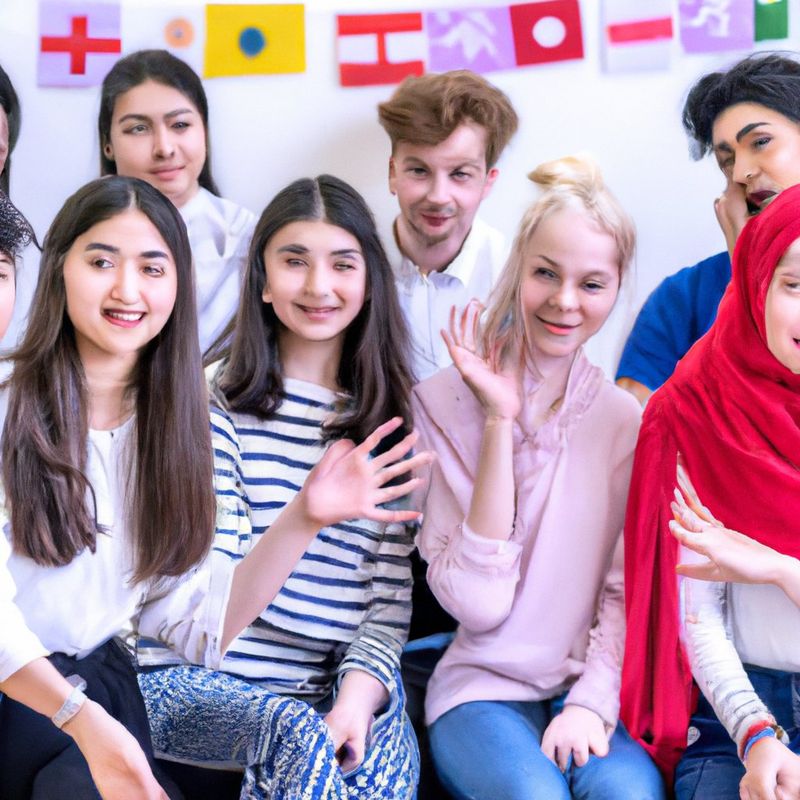As the torch of time passes from one generation to the next, Gen Z stands on the horizon, holding dreams and visions for a future that challenge traditional views. While some of these hopes embody change and innovation, others clash with the sentiments of older generations. Here, we explore 12 aspirations that Gen Z holds dear, yet often face resistance from those who came before them.
1. Work-Life Balance Prioritization

Balancing work and personal life is a mounting priority for Gen Z. Unlike previous generations, who often prioritized work above all else, this new generation seeks a harmonious blend of productivity and leisure. With remote work opportunities expanding, the boundaries of traditional office hours are becoming blurred.
While older generations may view this as a lack of dedication, Gen Z sees it as a pathway to mental well-being and personal fulfillment. This shift in perspective underscores a broader cultural change, where quality of life stands alongside professional success.
2. Sustainable Living Commitment

Gen Z’s commitment to sustainability is unwavering. Engrained with an awareness of environmental issues from a young age, this generation seeks to make impactful changes. Their push for sustainable practices in everyday life signifies a broader shift towards conscious consumption and eco-friendliness.
Older generations, who might have been less informed or more indulgent in disposable habits, often find this fervor challenging to understand. Gen Z’s dedication to sustainable living is not merely a trend but a long-term commitment to nurturing our planet.
3. Embracing Technological Advancements

For Gen Z, technology is more than just a tool; it’s a way of life. Growing up amidst smartphones and digital connectivity, they embrace technological advancements with open arms. From AI assistants to virtual reality, these innovations are second nature.
However, older generations sometimes see these changes with skepticism, fearing a loss of personal connection. Gen Z, conversely, views technology as a bridge to endless opportunities, fostering creativity, learning, and global communication.
4. Social Justice Advocacy

Passionate about equality and justice, Gen Z is at the forefront of social change. Their advocacy for marginalized communities and their demand for systemic reform are fueled by a deep commitment to fairness.
This generation’s activism often confounds older people, who may view such fervency as disruptive or overly idealistic. To Gen Z, however, these movements are crucial steps towards creating a more just world, embodying hope in action.
5. Gender Fluidity Acceptance

Gender fluidity is embraced by Gen Z, with many within the generation rejecting traditional gender norms. They champion a world where identity is personal and self-defined, not constrained by societal expectations.
Older generations, accustomed to binary gender classifications, might struggle to accept these shifts. Yet, for Gen Z, this acceptance of fluid identities fosters inclusivity and freedom, breaking down barriers that have long restricted personal expression.
6. Mental Health Awareness

Mental health awareness is a cornerstone for Gen Z, who prioritize emotional well-being as much as physical health. Tackling stigma, they advocate for open conversations about mental health issues, seeking support without shame.
In contrast, older generations often grew up in a culture of silence surrounding mental health, where such discussions were taboo. Gen Z’s openness represents a paradigm shift, breaking the chains of stigma and fostering a supportive community.
7. Diverse Career Paths

Gone are the days when a single career path was the norm. For Gen Z, diverse career opportunities abound, from entrepreneurship to freelancing. This generation values passion and creativity, often pursuing unconventional routes to success.
Older generations might view this as instability, urging traditional career security. However, Gen Z recognizes that in diversity lies resilience, and their ability to adapt paves the way for innovative contributions to the workforce.
8. Global Citizenship Perspective

Gen Z views themselves as global citizens, embracing cultural diversity and international interconnectedness. With the world at their fingertips, they celebrate differences and seek common ground across borders.
While older generations may focus on national identities, Gen Z’s perspective is more inclusive, fostering a sense of shared humanity. This global outlook encourages cooperation and empathy, crucial for addressing worldwide challenges.
9. Open-Mindedness in Education

Education for Gen Z goes beyond formal learning. They value diverse perspectives, open-mindedness, and critical thinking. This generation seeks out knowledge that challenges the status quo, exploring varied disciplines and worldviews.
Older generations, accustomed to traditional curricula, might struggle with this broad approach. Yet, Gen Z’s thirst for knowledge signifies a move towards a more comprehensive understanding of the world, preparing them for the complexities of modern life.
10. Digital Content Creation

Digital content creation is an integral part of Gen Z’s identity. From social media influencers to online storytellers, they utilize digital platforms to express creativity and connect globally.
Older generations might dismiss this as frivolous or shallow, failing to see the potential for personal branding and entrepreneurship. For Gen Z, digital content is a powerful tool for communication and influence in a connected world.
11. Flexible Living Arrangements

Flexibility defines Gen Z’s approach to living arrangements. They often prefer shared spaces, co-living, and minimalistic lifestyles that allow for adaptability and freedom.
This contrasts with older generations’ preferences for home ownership and permanence. To Gen Z, flexible living offers opportunities for mobility and community, aligning with their dynamic and interconnected lifestyle.
12. Focus on Experiences Over Possessions

Experiences trump possessions for Gen Z. They prioritize adventures, travel, and moments that create lasting memories over material goods. This shift reflects a desire for meaningful engagement with the world around them.
Older generations, often valuing material success, might see this as a lack of ambition. However, Gen Z’s focus on experiences highlights a deeper search for personal growth and fulfillment through life’s varied tapestry.

